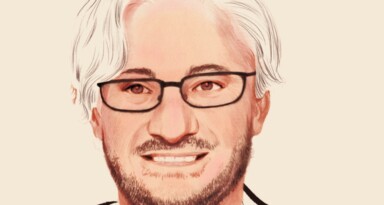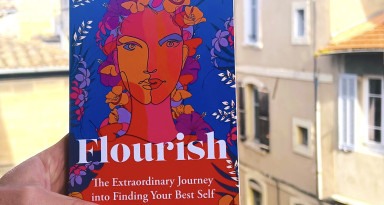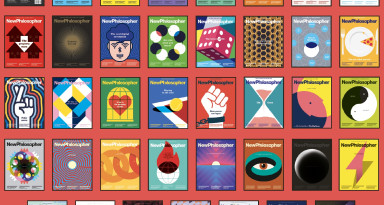Before John Major’s government converted Britain’s erstwhile polytechnics into universities in the 1990s, higher education in Britain was strictly a two-tier affair. Universities, channelling the now-distant model of Grecian gymnasia – still snooty about classics and the liberal arts – admitted students keen to study ‘for the sake of studying’. Polytechnics, home traditionally to the nation’s engineering schools, were ranked beneath, sullied with the taint of practical utility.
Over the 20th century ‘Polys’ morphed and modernised to offer courses in art and design technology, fashion, journalism, filmmaking, and more. Yet still, those judged to be ‘university material’ were shunted up into ivory towers from where they looked down on the Polys for providing ‘vocational training’ – as if world-relevant knowledge and skills were somehow a lesser acquisition. As if education’s having a point or telos was by the by.
To be reductive about matters: one half of higher education gave people something to think about while the other gave them something to do. Which brings to mind the 19th century writer and clergyman George Washington Burnap’s frequently-cited adage: “The grand essentials of happiness in this life are: Something to do, something to love, and something to hope for.”
Vocation. A calling. From the Latin vocare. The term was originally applied to candidates moved to enter the priesthood in response to divine imperative: priests were called into service, and in servitude they found happiness and meaning. These days, when we talk about having a vocation we think of doctors and lawyers, teachers and artists, people who, in heeding their calling, find direction but also connection to a higher set of virtues – healing, justice, pedagogy, poiesis. In pursuit of these virtues, something of the self gets sacrificed, gets melted into the collective for the greater benefit of all.
I’ve always felt moved by this counter-intuitive approach to happiness, by the idea that only by giving stuff away (in this case one’s selfish desires, but it could just as easily be our material accoutrements) one is more, not less fulfilled. Now more than ever I want to cling to the idea that finding happiness bears some connection to purpose, or even duty. We inhabit a world in which too many people appear convinced that our first duty is to self and that happiness and fulfilment are consequently attendant on making sure that whatever the self desires, the self acquires. Enter consumerism, and the vicious cycle of chasing empty materialism. Enter the hollow pursuit of peak experiences – those fleeting highs that society hoodwinks us into believing are gateways to happiness, when in fact their very nature (and maybe, as a result, their beauty) is evanescent.
Perhaps my argument is better made if we turn things around and ask if it is possible to be happy without purpose? You might feel the temporary thrill of release at stepping outside of goal-driven expectations, of letting yourself off the hook or climbing off the wheel of capitalist productivity. The allure here is that in the absence of purpose one might be free. Think of the hippie movement and its cultivated lassitude, the way its members turned their backs on worldliness, believing that happiness lay not in wanting, but in being. (I’m certainly not the first to observe the irony in how things panned out, given how many dropouts of the ‘60s went to become the corporate CEOs of the ‘80s and ‘90s).
Or consider the classic retirement scenario that promises happiness off the back of ceasing any purposeful activity. Retire, and the woes of the world are no longer yours to care about! You can play golf, sun yourself on the beach, read novels, drink at lunchtime. The rules of engagement no longer apply since you’ve done your bit, served your time, given the best of your life to the work ethic. Earned the gold watch and the heartfelt handshake. So off you go now to drift into your own rosy sunset and never look back.
The clichés come so easily. Which is surely a warning sign that a myth is being spun before our eyes. Indeed, studies too numerous to mention correlate the kind of post-work scenario associated with classic retirement with rising rates of depression (not to mention alcoholism and other kinds of chemical and emotional dependency).
In researching his wonderful study of late life and human finitude, Being Mortal, the doctor and writer Atul Gawande interviewed dozens of elderly and terminally ill people in an attempt to discover what factors, mental and physical, contributed to their happiness and wellbeing as they confronted the very real prospect of dying. Time and again, he found that having purpose led to greater happiness than having grandchildren who visited, or enjoying social connection or material comfort. Towards the end of the book, Gawande talks to music teacher Peg, who is leaving hospice to die at home. Peg is also determined to continue teaching, which she undertakes as her energies permit. Eventually, a recital is held, her pupils gather to perform and she gives each of them a celebratory hug. In however small a way, she makes her mark on the world before leaving it.
Lockdown has paralysed so many of us these past months, suspending us inside our domestic bubbles and robbing us of purpose. The enforced passivity is infantilising: furloughed from our working lives, banned from caring for family and friends beyond our immediate households, debarred from public service – unless we’re ‘key workers’– we’ve sunk into a kind of collective funk. In some ways this suspension of real-world activity turns us into a de facto experimental lab, where some of the latest ideas about goal-driven behaviour and happiness might be tested. At the Greater Good Science Center (GGSC) at the University of Berkeley in California, happiness experts are busy studying our lockdown behaviour. They want to see if, in these straitened times, small steps can fill the shoes of larger life goals.
It is no accident that people have been sewing masks, baking bread, taking online courses, embracing DIY. It’s exactly the kind of ‘intentional activity’ that GGSC psychologists such as Sonia Lyubomirsky recommend as part of what she calls the ‘architecture of sustainable happiness’, which supports and builds feelings of subjective wellbeing.
It is interesting that in addition to the tropes of positive psychology – and the goal-orientated eudaimonic drives they endorse – the Berkeley psychologists are rediscovering the classic virtues. While their work on intentional activity dates back at least a decade, their most recent research suggests that practising gratitude, forgiveness, and the work of striving boosts our happiness levels just as effectively. No doubt the servitude demanded by a vocational calling falls into this unlikely camp as well. It gives me hope that the ingredients of a happy life are not, ultimately, selfish ones.
From the Purpose edition, which can be purchased online here.





